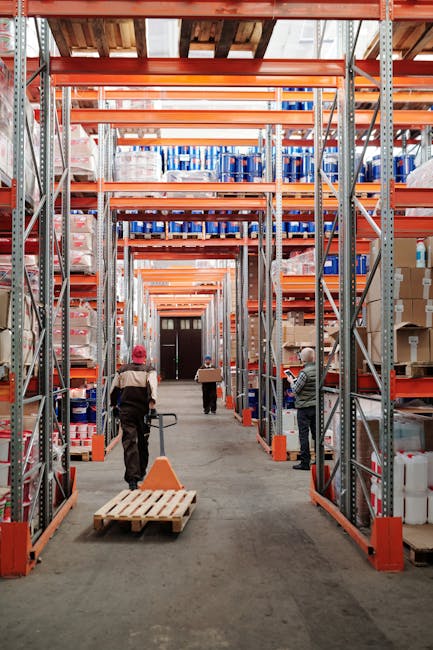 Essential Factors for Choosing the Right Storage Facility
Essential Factors for Choosing the Right Storage Facility
Effective warehousing is a cornerstone of efficient logistics and business operations. When seeking warehouse storage, whether for personal use or as a business solution, various factors come into play to ensure you select the right facility. In this article, we’ll explore five essential considerations to keep in mind when looking for warehouse storage.
Space and Storage Capacity:
The primary factor in selecting a warehouse is the available space and storage capacity. Assess your storage needs by considering the volume and nature of the goods you plan to store. A suitable warehouse should not only have adequate square footage but also offer versatile storage options, such as racking systems, shelving, and pallet storage. Ensure the facility’s layout aligns with your storage requirements, allowing for efficient organization and retrieval of items.
Location and Accessibility:
The location of the warehouse plays a critical role in optimizing supply chain and distribution processes. Consider the proximity of the warehouse to key transportation hubs, suppliers, and your target market. A strategically located warehouse can reduce transportation costs, minimize delivery times, and enhance overall logistics efficiency. Additionally, assess the accessibility of the facility, including road infrastructure and proximity to major highways, to streamline the movement of goods to and from the warehouse.
Security and Safety Measures:
Security and safety are paramount when storing goods in a warehouse. Evaluate the security measures in place, such as surveillance systems, access controls, and on-site security personnel. A secure warehouse minimizes the risk of theft, vandalism, and unauthorized access. Furthermore, assess the facility’s safety protocols, including fire prevention measures, emergency exits, and compliance with local safety regulations. Prioritizing security and safety ensures the protection of your stored inventory and the well-being of personnel working within the facility.
Technology and Inventory Management Systems:
In the digital age, warehouse management relies heavily on technology. When considering a warehouse storage facility, inquire about the technology and inventory management systems in use. Modern warehouses often utilize advanced software for real-time tracking of inventory, order processing, and reporting. Integration with your own systems or compatibility with industry-standard platforms can significantly enhance the efficiency and accuracy of inventory management. Choose a warehouse that leverages technology to streamline operations and provide transparent, up-to-date information on your stored goods.
Flexibility and Scalability:
Business needs are dynamic, and a suitable warehouse should offer flexibility and scalability to accommodate changes in storage requirements. Consider the terms of the storage agreement, including lease duration and the ability to adjust storage space as needed. A flexible warehouse partner can adapt to fluctuations in inventory levels, seasonal demands, and evolving business strategies. Scalability is particularly crucial for businesses experiencing growth, ensuring that the warehouse can support increased storage needs without disrupting ongoing operations.
Selecting the right warehouse storage is a multifaceted decision that requires careful consideration of various factors. From space and location to security, technology, and flexibility, each aspect plays a crucial role in ensuring the efficiency and effectiveness of your warehousing operations. By keeping these key factors in mind, you can make an informed decision that aligns with your specific storage needs and sets the stage for streamlined logistics and successful business operations.